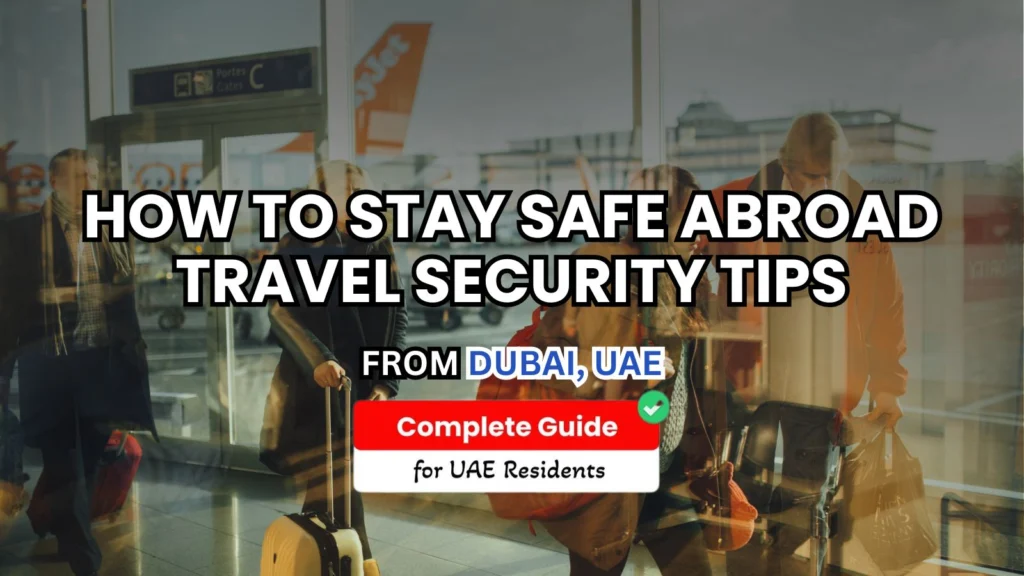
Travel is exciting—new streets, new snacks, new stories. Safety doesn’t kill the vibe; it protects it. Before you pack, do a quick safety sweep: look up advisories, recent news, and common scams for your destination. Note any neighborhoods best avoided after dark. Jot down cultural norms and basic phrases. Ten minutes of reading now saves ten headaches later.
Share your trail
Don’t disappear on the people who care about you. Send a simple plan to a trusted contact: flight numbers, hotel names, dates, and a copy of your passport photo page. Then, check in—brief voice note or “all good” message each day. If plans change, update your contact. It’s like leaving breadcrumbs, but with Wi-Fi.
Carry less, protect more
Think “lean and layered.” Take only the cash you need for the day. Keep a backup card separate from your main wallet. Leave extra cards and jewelry at home. Store digital copies of your passport, visas, and insurance in encrypted cloud storage or a password manager. A slim crossbody or anti-theft pack beats a dangling tote in busy markets.
Move wisely
Use official taxis, ride-hailing apps, or hotel cars. Confirm the plate before you hop in and sit behind the driver if traveling solo. Skip shared rides with strangers, especially at night. On public transport, hug the daytime hours when you can and keep valuables in front—zippers facing you, not the crowd.
Choose safe stays
Read recent reviews with the word “security” in mind. Look for staffed reception, keycard access, and CCTV in common areas. Higher floors feel safer than ground level, but still know your nearest exit. In the room, lock the door, latch it, and consider a small portable doorstop. Don’t share your room number out loud at check-in; just point to it on the card.
Blend in, don’t broadcast
Dress modestly and skip the full designer billboard look. Big camera? Use a simple strap and keep it close. In street markets, wear your bag across your body and keep your phone in a front pocket or zipped compartment. If someone bumps you, check your pockets first, pride second.
Keep your data clean
Public Wi-Fi is great until it isn’t. Avoid logging into banking on open networks. Use a VPN if you must access sensitive accounts. Turn off auto-connect to Wi-Fi and AirDrop/Nearby Share. Enable biometric logins and transaction alerts. For online bookings, virtual card numbers (when available) add an extra lock on the door.
Know your “just in case” plan
Before you fly, note three essentials: local emergency numbers, the nearest UAE embassy/consulate address, and your travel insurance hotline. If something goes missing, file a police report quickly—it’s often required for insurance claims and replacement documents. Save receipts when buying replacement items; they make reimbursement easier.
Respect laws and norms
Local rules can be strict, and “I didn’t know” rarely works. Check photo restrictions (government buildings, military sites, some religious places). Skip political debates in sensitive regions. Understand alcohol rules and what counts as a controlled substance; medications that are normal at home may require paperwork abroad. When in doubt, ask or err on the side of quiet.
Manage your money smartly
Pay by card where possible, but watch for dynamic currency conversion—always choose to pay in local currency. If you need cash, use bank-branded ATMs inside malls or branches and withdraw a single larger amount to reduce fees. Keep a small emergency stash hidden away from your daily wallet.
Guard your phone like a passport
Your phone is maps, money, tickets, and memories. Set a strong passcode (not 1234), enable “Find My” tracking, and back up photos over Wi-Fi. Consider a simple lanyard case or wrist strap in busy areas. If a stranger asks to “borrow your phone,” offer to place the call on speaker—no hand-offs.
Social media, gently
Real-time posting advertises where you are—and where you’re not (like your hotel room). Delay geotagged posts until you’ve left the spot. Keep location sharing tight to trusted contacts only. Your feed can wait an hour; your safety can’t.
Health and tempo
Hydrate, especially in hot climates. Wear sunscreen. Don’t try to “win” travel by stuffing five attractions into one afternoon; tired travelers make sloppy choices. If you’re fasting or jet-lagged, schedule the heavy sightseeing for when your energy is back. Listen to your body—it whispers before it shouts.
Quick day ritual
Each morning: hotel card in pocket, local emergency number saved, small cash, one card, copy of ID, and a charged power bank. Each evening: message home, review tomorrow’s route, and move your passport back to the safe. Tiny habits, big peace of mind.
If something feels off
Trust your gut. Step into a shop, hotel lobby, or well-lit area. Change direction. Call a ride. You don’t owe politeness to pressure. A firm “no thanks” and a steady walk away is a complete sentence.
One-page checklist
-
Destination advisories read and screenshots saved
-
Itinerary shared with a trusted contact
-
Copies of passport/visas/insurance secured online
-
Two payment methods, stored separately
-
Official transport apps downloaded and verified
-
Hotel security reviewed; doorstop packed (optional)
-
VPN, alerts, and device locks set
-
Embassy contact and insurance hotline saved
-
Emergency cash tucked away
-
Daily check-ins planned
Final thought
Safe travel isn’t about fear; it’s about margins. A little research, a few routines, and a handful of quiet precautions create space for the fun parts—sunset ferries, long lunches, and wandering without worry. Pack light, stay alert, be kind to your energy, and let your common sense lead.
